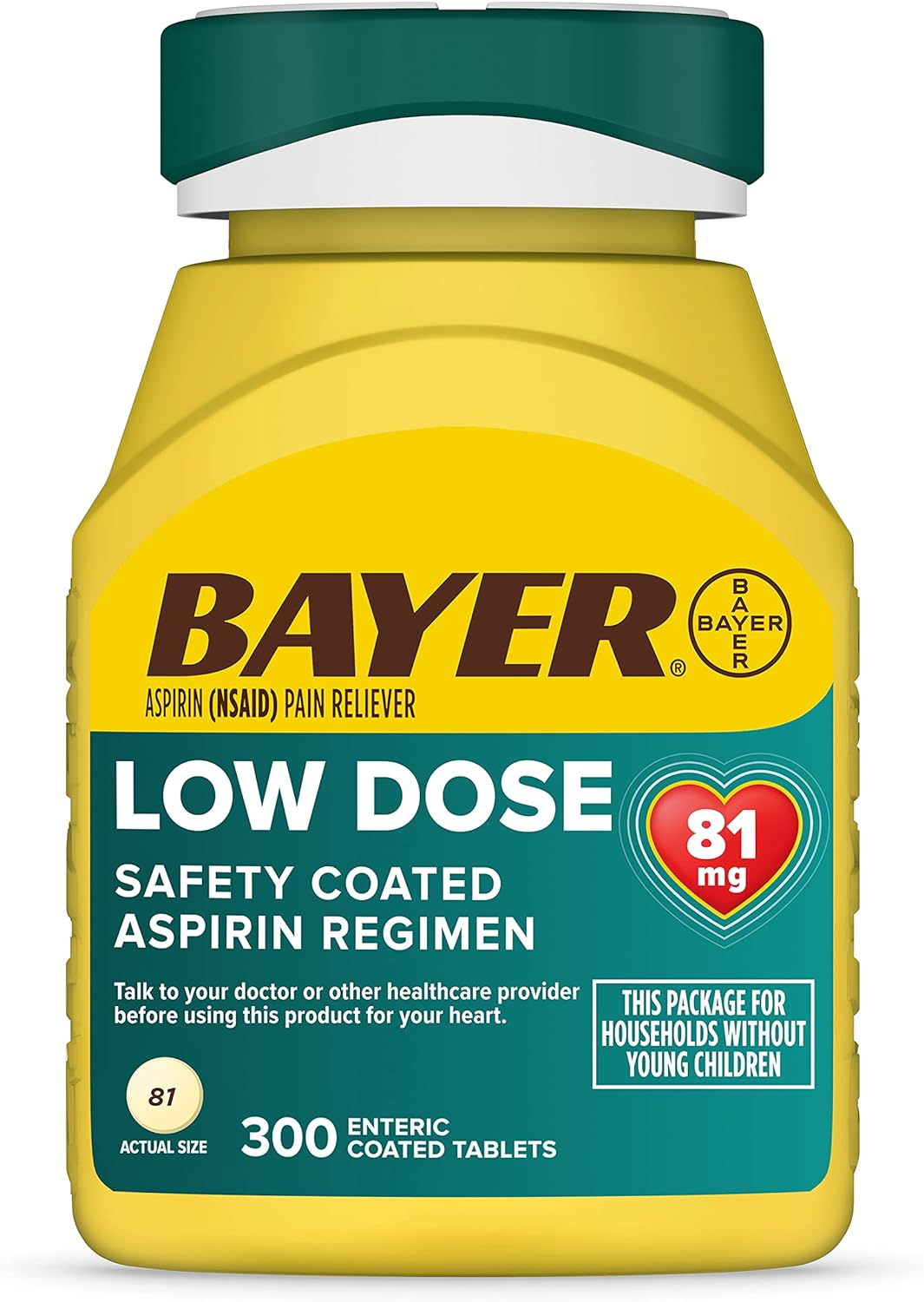Low-Dose Aspirin Therapy: Health Benefits, Risks
What are the health benefits of low dose aspirin therapy?
Low-dose aspirin therapy, also known as aspirin therapy, is the use of aspirin at a low dose (usually 81 mg) to help prevent heart attacks, strokes, and certain types of cancer. Some of the potential health benefits of low-dose aspirin therapy include:
- Reduced risk of heart attack: Low-dose aspirin can help prevent blood clots from forming in the arteries, which can reduce the risk of heart attack.
- Reduced risk of stroke: Aspirin therapy can also help prevent blood clots from forming in the arteries that supply blood to the brain, which can reduce the risk of stroke.
- Reduced risk of colorectal cancer: Some studies suggest that long-term aspirin use may reduce the risk of developing colorectal cancer.
- Reduced risk of other cancers: Aspirin therapy may also reduce the risk of other types of cancer, including esophageal cancer, stomach cancer, and pancreatic cancer.
- Anti-inflammatory effects: Aspirin has anti-inflammatory properties, which may help reduce inflammation in the body and lower the risk of certain chronic diseases.
- Improved survival rates for certain conditions: Aspirin therapy has been associated with improved survival rates for certain conditions, including heart attack and colorectal cancer.
It’s important to note that while low-dose aspirin therapy can have these potential health benefits, it is not suitable for everyone. Aspirin can increase the risk of bleeding, especially in the stomach and intestines, so it should only be used under the guidance of a healthcare provider. It’s important to discuss the potential risks and benefits of aspirin therapy with your healthcare provider before starting treatment.
What are the health risks associated with low dose aspirin therapy?
While low-dose aspirin therapy can have several health benefits, it also comes with potential risks, especially when used long-term or in certain populations. Some of the health risks associated with low-dose aspirin therapy include:
- Increased risk of bleeding: Aspirin can interfere with the blood’s ability to clot, which can increase the risk of bleeding, especially in the stomach and intestines. This can lead to gastrointestinal bleeding or, in rare cases, hemorrhagic stroke.
- Allergic reactions: Some people may be allergic to aspirin and may experience allergic reactions, such as hives, swelling, or difficulty breathing.
- Gastrointestinal side effects: Aspirin can irritate the stomach lining, leading to symptoms such as stomach pain, indigestion, or ulcers.
- Kidney function: Long-term use of aspirin can affect kidney function, especially in people with existing kidney disease.
- Reye’s syndrome: Aspirin should not be given to children or teenagers with viral infections, as it has been associated with Reye’s syndrome, a rare but serious condition that can affect the liver and brain.
- Drug interactions: Aspirin can interact with other medications, especially blood thinners and nonsteroidal anti-inflammatory drugs (NSAIDs), increasing the risk of bleeding.
- Asthma exacerbation: Some people with asthma may experience worsening symptoms when taking aspirin.
- Tinnitus: In rare cases, aspirin use can cause ringing in the ears (tinnitus).
It’s important to note that the risks associated with aspirin therapy can vary depending on the individual and their medical history. It’s important to discuss the potential risks and benefits of aspirin therapy with a healthcare provider before starting treatment, especially if you have any underlying health conditions or are taking other medications.




